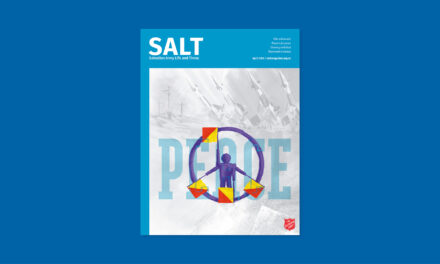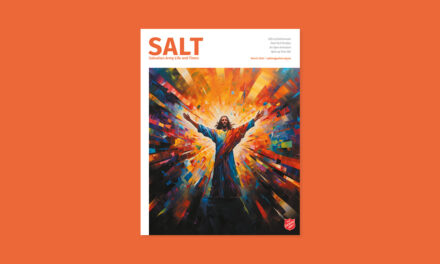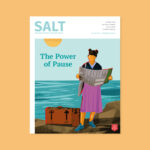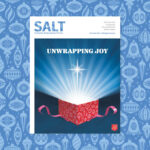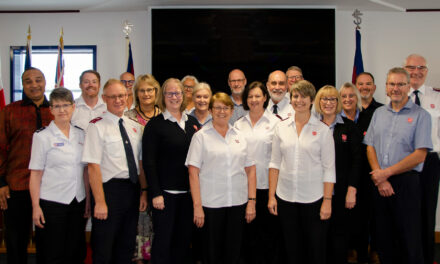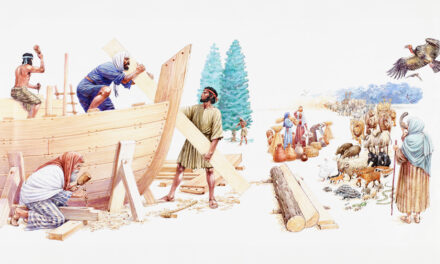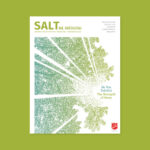
Gifts of Gethsemane
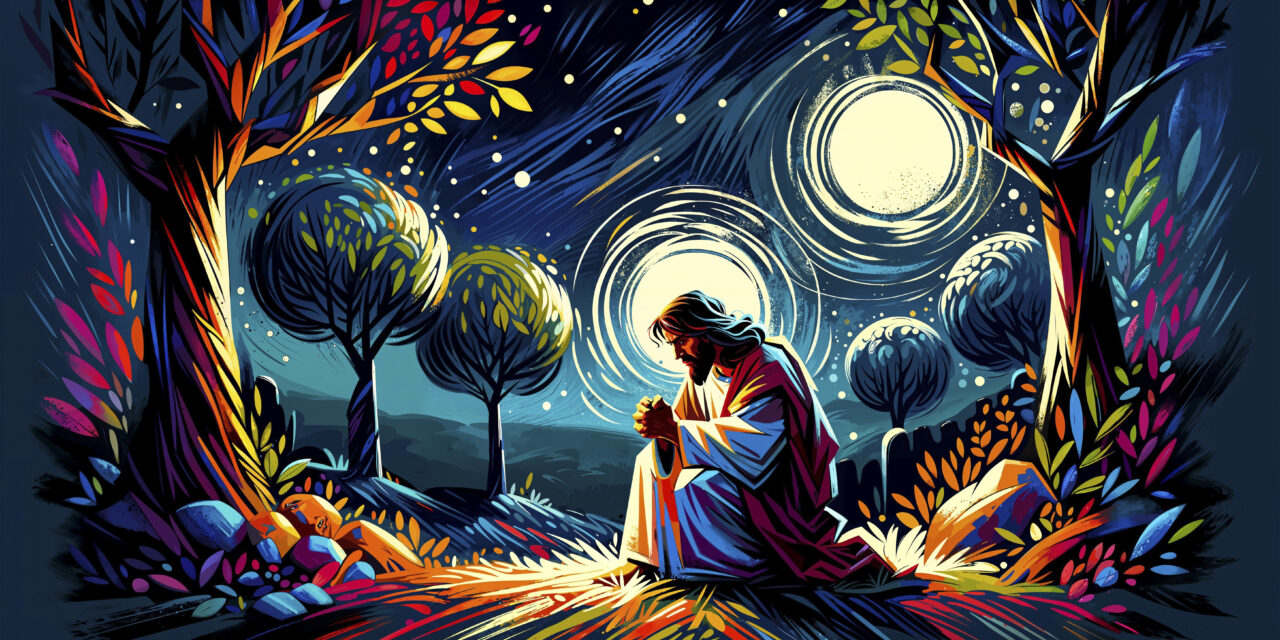
Overwhelming anxiety, disappointment, grief, fear, abandonment, pain and suffering—these are not words that roll easily off our tongues when we consider the Easter story, and yet Jesus felt and experienced them all. Sometimes the echoes of our own pain reverberate around the edges of Easter, insisting that we skip to the victorious end of the story. But Jesus invites us to embrace our discomfort and linger with him in the garden of Gethsemane and receive the gifts of grace to be found there.
Words Jules Badger
This year, hot cross buns first appeared in the supermarket in mid-January. Wait, what? Yes, you read that correctly. But Easter’s ages away—we’re barely through Christmas! Isn’t it in April? Well, mostly yes, but 23 percent of the time Easter is in March. When Easter comes early, as it does this year, we can feel a little discombobulated. And while many people had taken down their Christmas trees and carefully packed away the decorations by mid-January, others of us were still clinging to Christmas with its joyful message, resisting the pull of another new year for as long as possible. Either way, when Easter is announced not by the beginning of Lent but in January with advertisements for iced buns and chocolate eggs, we can be left with a bitter taste in our mouths. As with Christmas, we lament the commercialisaton of this significant and sacred celebration in the Christian calendar.
Deep down though, every follower of Jesus knows that Easter is always the death of Christmas. The baby whose birth we celebrate at Christmas becomes the man who died at Easter. There is no cross without the cradle. The life that began in the womb is not defeated by the darkness of the tomb. The one who said, ‘…I am the resurrection and the life. The one who believes in me will live, even though they die’ (John 11:25b), proved his claim to be true by dying on the cross and rising again three days later.
Easter is a love story. In Romans 5:8 we read, ‘But God demonstrates his own love for us in this: While we were still sinners, Christ died for us’. But like many love stories, there is a moment of crisis when a decision must be made. In the garden of Gethsemane, Jesus chose love for us over his own life. However, fast forward 2000-plus years and we can be devastatingly desensitised to the difficulty of that decision. In a sermon entitled ‘The Gethsemane Prayer’, John Mark Comer (author of Practicing the Way) reminds us that it was in Gethsemane where Jesus chose of his own free will to go to the cross. But he also suggests, shockingly, that Jesus could have made a different decision. ‘Jesus could have got up and walked out of Gethsemane and back home to Nazareth and had a good career as a rabbi (teacher). But instead, he gave his life, took our pain and suffering on his shoulders, drew our sins to a focal point in his body and drank the cup that should have been ours. He didn’t walk away—he did it because that’s what love is.’
Can you relate?
When we meet Jesus in the garden of Gethsemane, we often jump ahead to the iconic phrase ‘…not my will but yours be done’ (Luke 22:42b) and miss the anguish and wrestling that Jesus goes through on the way to that moment of surrender. We don’t want to dwell on the struggling Jesus, we want the resolute Jesus! But how helpful is that perception of Jesus when we face our own difficulties and challenges—our own Gethsemane moments? Perhaps you’ve tried to pray your will be done, God, with a stoic-like posture, and instead of finding solace and strength you’ve been left feeling more defeated than when you began. We know that Jesus is both human and divine, but sometimes we give more attention than is helpful to his divine nature and become stuck, paralysed by our inability to follow Christ’s lofty example (which is not to diminish Christ’s divinity by any means, but simply to shine a light on the humanity we share). We pray, Lord, I know that you are both God and human, but I’m only human and I’m struggling! Perhaps you can relate.
John Mark reminds us that ‘pain and suffering come to knock on all of our doors—no one is immune’. And he’s not talking about sin or moral failure, but the gap between our expectations and experience—the things we have no control over. The things we did not and would not choose for ourselves: chronic illness, loss of a loved-one, life’s disappointments.
‘We follow a rabbi whose life ended not in glory but in shame on the cross. And if we lose sight of that trajectory, we end up with a skewed view of life that just does not set us up well for the inevitable pain and suffering of the human condition,’ says John Mark. ‘And like Jesus, we all come to our own Gethsemane in our spiritual journey at some point and it is a place of pain.’ In Gethsemane, Jesus models a response to life’s most unwelcome trials—one we can relate to and follow as an example of how to pray when tough times inevitably come our way.
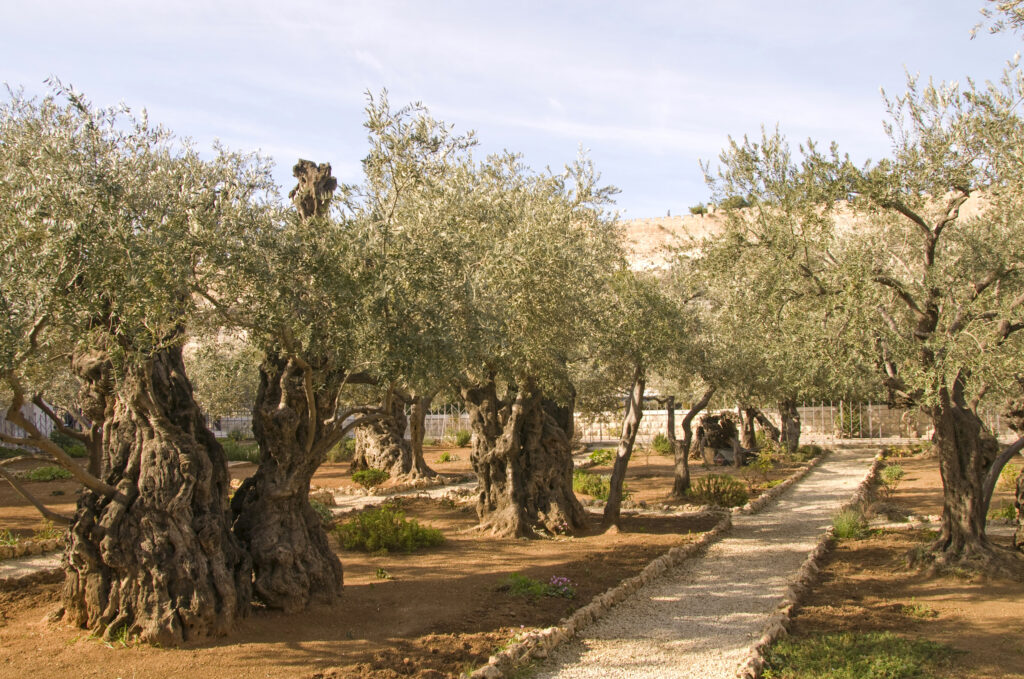
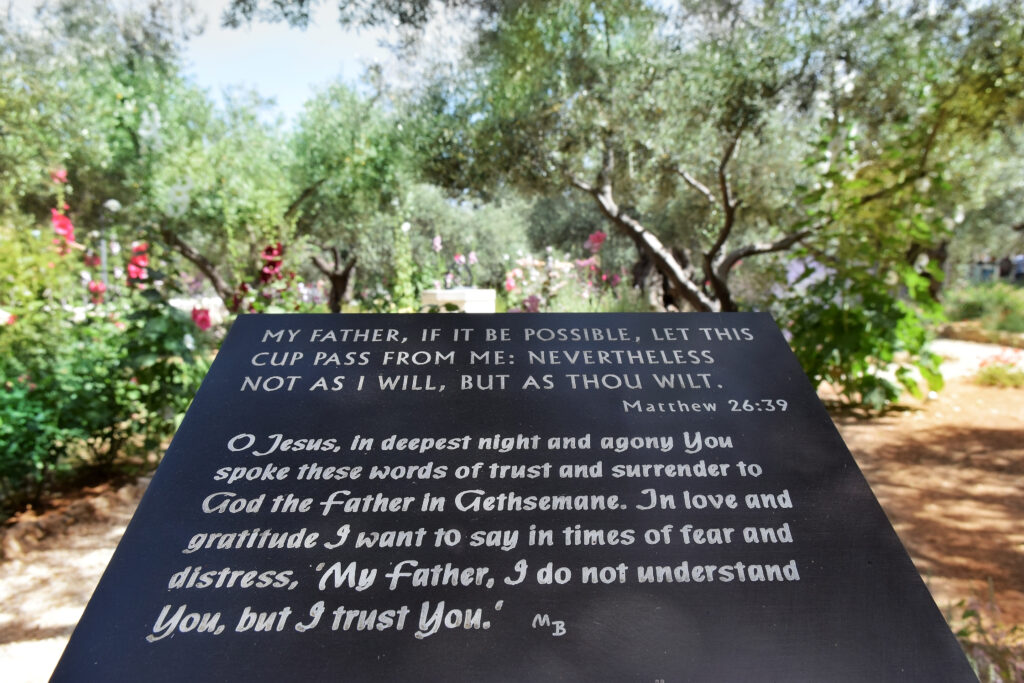
Raw and uncut
Gethsemane literally means ‘olive press’. An olive press is used to crush olives and release the oil within. ‘A fitting word picture and location for Jesus to unburden his heart to God,’ suggests John Mark. ‘The cross is his olive press where he was literally crushed to release his oil, so to speak—his life—for you and me and the world.’
In Matthew 26:36–55, Jesus took Peter, James and John (his closest friends) away with him to pray. We read that Jesus ‘began to be sorrowful and troubled’. He says, ‘My soul is overwhelmed with sorrow to the point of death. Stay here and keep watch with me’.
John Mark explains that the use of the word ‘began’ is significant. ‘In therapeutic language Jesus begins to feel his feelings—on purpose. He’s come away to take stock in silence and solitude, supported by some friends. He’s in a safe place to feel what has been sitting under the surface.’ Some of us may not recognise this Jesus who is so in touch with his feelings! John Mark points out that, ‘There is no filter here, no editing. It’s just raw and uncut. Jesus tells God how he really feels … Jesus is not as scared of honesty with his Father as we are.’
In the next verse (39) we read that Jesus fell to the ground and prayed, ‘My Father, if it is possible, may this cup be taken from me’. John Mark explains that when Jesus uses the word ‘cup’ here, he is using a well-known first century idiom meaning your allotment of pain and suffering in life—this is Jesus just hours away from the cross, asking God if there is another way! After returning to his friends and despairing because they can barely keep their eyes open, Jesus goes away to pray again. This time his prayer is a little more open, ‘My Father, if it is not possible for this cup to be taken away unless I drink it, may your will be done’.
An invitation to linger
‘Jesus is teaching us by example to bring God all of our desires—not just the good ones,’ explains John Mark. ‘We have this mixed bag of feelings, and we also have a mixed bag of desires, most of which we are embarrassed or scared of. I filter my desires when I pray and only give God the good ones—the bad ones I stuff away and ignore or feel guilty about. But Jesus models giving God all his desires. What if in a moment of temptation to click on that site … or in a moment of greed to buy that item you don’t need … what if instead we gave that desire to God? What if we said, “God this is what’s in me. I know it’s sinful or stupid but right now this is what I really want”. What if we let God do the filtering for us? This is what Jesus does.’
John Mark refers to this as ‘the Gethsemane prayer’. ‘It’s my best attempt to explain what it means to watch and pray when I’m feeling disappointment or emotions that I don’t like or I’m facing an olive press moment. It’s a 30-second prayer. Give God your feelings, give God your desires, and then give God your trust. Let go and turn that inner fulcrum, that part of you that is willful, turn it to willing. Yield to God—Your will be done, Lord. This is the way of Jesus whose deepest desire, underneath his other desire not to suffer or go through the pain and rejection, was for his Father’s will to be done. If you have the Spirit of God in you, you have that desire too. It might be right at the surface of your heart, or it might be buried down deep below a heap of stuff, but it’s there.’
This Easter, the invitation exists to linger with Jesus in the garden of Gethsemane and receive the gift of grace he offers. Jesus knows your pain and suffering, he knows your deepest feelings and your darkest desires, and still, he loves you—enough to walk out of Gethsemane and go willingly to the cross and sacrifice his life. God raised Jesus to life so that you could know and experience the depths of this love every day—remember that when you face your own Gethsemane moments. Give God your feelings, give him your desires, and then give him your trust. He loves you with an everlasting love and will never leave or forsake you.

